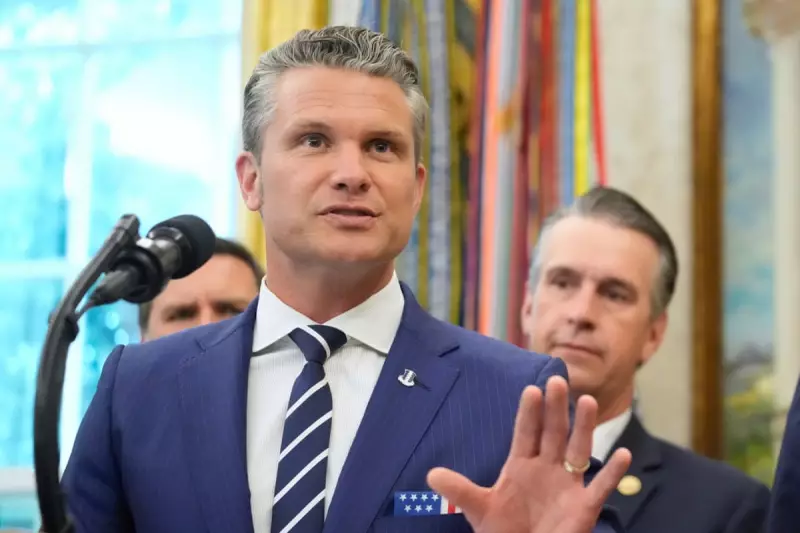
A bombshell report has uncovered a clandestine operation by former President Donald Trump's inner circle to orchestrate a sweeping purge of the Pentagon's top legal minds. At the heart of the plan is close Trump ally and media personality, Pete Hegseth, who is allegedly compiling lists of senior defence department lawyers marked for potential dismissal.
The move, described by sources as 'pre-emptive', specifically targets attorneys within the Office of the General Counsel of the Department of Defense who were perceived as resistant to the Trump administration's most hardline immigration policies during his first term. These officials were seen as obstacles to implementing controversial measures, including the use of military funds and personnel for border wall construction and immigration enforcement.
A Blueprint for a Second Term
This revelation offers a startling glimpse into the prepared strategy for a potential second Trump term, suggesting a planned radical overhaul of the US defence establishment from day one. The effort appears designed to sideline career officials and lawyers who prioritise legal and constitutional safeguards, replacing them with political loyalists.
The report indicates that Hegseth's role, while informal, is highly influential. His actions are being interpreted as laying the groundwork for a administration that would face significantly less internal legal resistance to its policy agenda, particularly concerning the militarisation of immigration enforcement.
Ethical Alarms and Constitutional Concerns
The potential dismissal of non-partisan, career civil service lawyers based on their past legal advice raises profound ethical and constitutional concerns. Critics have been quick to condemn the plan, labelling it an assault on the rule of law and the principle of non-political legal counsel within the military.
Such a purge would represent an unprecedented politicisation of the Pentagon's legal corps, an office traditionally dedicated to ensuring that the world's most powerful military operates within the bounds of US and international law. The move has sent shockwaves through the defence community, sparking fears about the erosion of institutional norms and the potential for unchecked executive power.
As the 2024 election looms, this report underscores the high-stakes battle over the future of US governance and the institutions tasked with preserving its democratic foundations.





